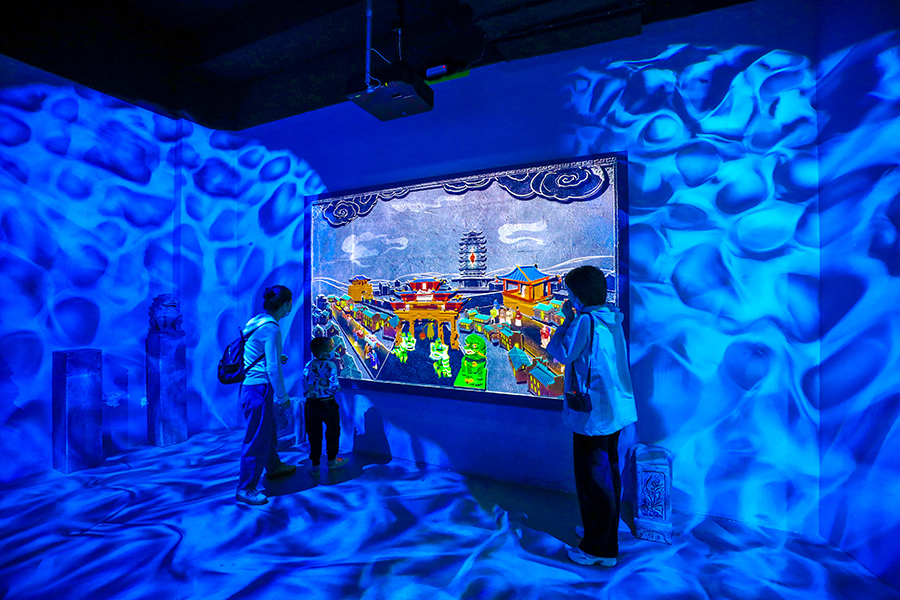Country No 2 in metaverse patent application count
By CHENG YU | CHINA DAILY | Updated: 2023-02-07 07:23

China is now No 2 in metaverse-related global patent applications with a nearly 30 percent share gathered through its 14,291 applications, a report by South Korea's Korean Intellectual Property Office stated.
China trails the United States which has filed 17,293 applications, accounting for nearly 36 percent of the total covering the period from 2011 to 2020. South Korea ranks third with 7,808 applications, or 16 percent of the total.
Some 43,700 patent applications related to the metaverse and immersive content were made from 2016 to 2020 in the US, South Korea, Japan, Europe and China, which grew nearly threefold over those filed in the previous five years, the office said.
The metaverse is a trending concept that loosely refers to an immersive virtual world that combines technologies like virtual reality and augmented reality. Though still nascent, companies globally have been gearing up efforts in developing and investing in metaverse-related technologies.
Another report by market consultancy Preqin said that instead of a global, shared metaverse, the Asia-Pacific region is more likely to see several local online worlds developed by various entities in China and South Korea. It noted that from 2021 to November 2022, more venture capital deals in AR and VR fields were concluded in China than in the US.
"The next decade will be a golden era for the development of the metaverse in China, but the country values the role of the metaverse in upgrading the real economy," said He Chao, secretary-general of the metaverse industry committee at the China Mobile Communications Association, an industry organization based in Beijing.
In November, the Ministry of Industry and Information Technology released a plan to grow the market size of China's VR industry beyond 350 billion yuan ($50.4 billion) by 2026.
Though it did not explicitly mention the metaverse, the plan called for more efforts to create fundamental technologies that support immersive AR, VR and mixed reality experiences, all of which are aspects of the metaverse.
Sun Jiashan, a researcher at the Chinese National Academy of Arts, said the metaverse as a concept is still nebulous and a lot of clarity needs to emerge before its utility value could be established beyond the current hype, which some fear could spawn equity bubbles.
"China needs to remain on high alert against financial speculators trying to cash in on the metaverse craze, not least because such actions could disrupt the efficient allocation of resources, hinder the cultivation of talent and harm industries," he said.
























